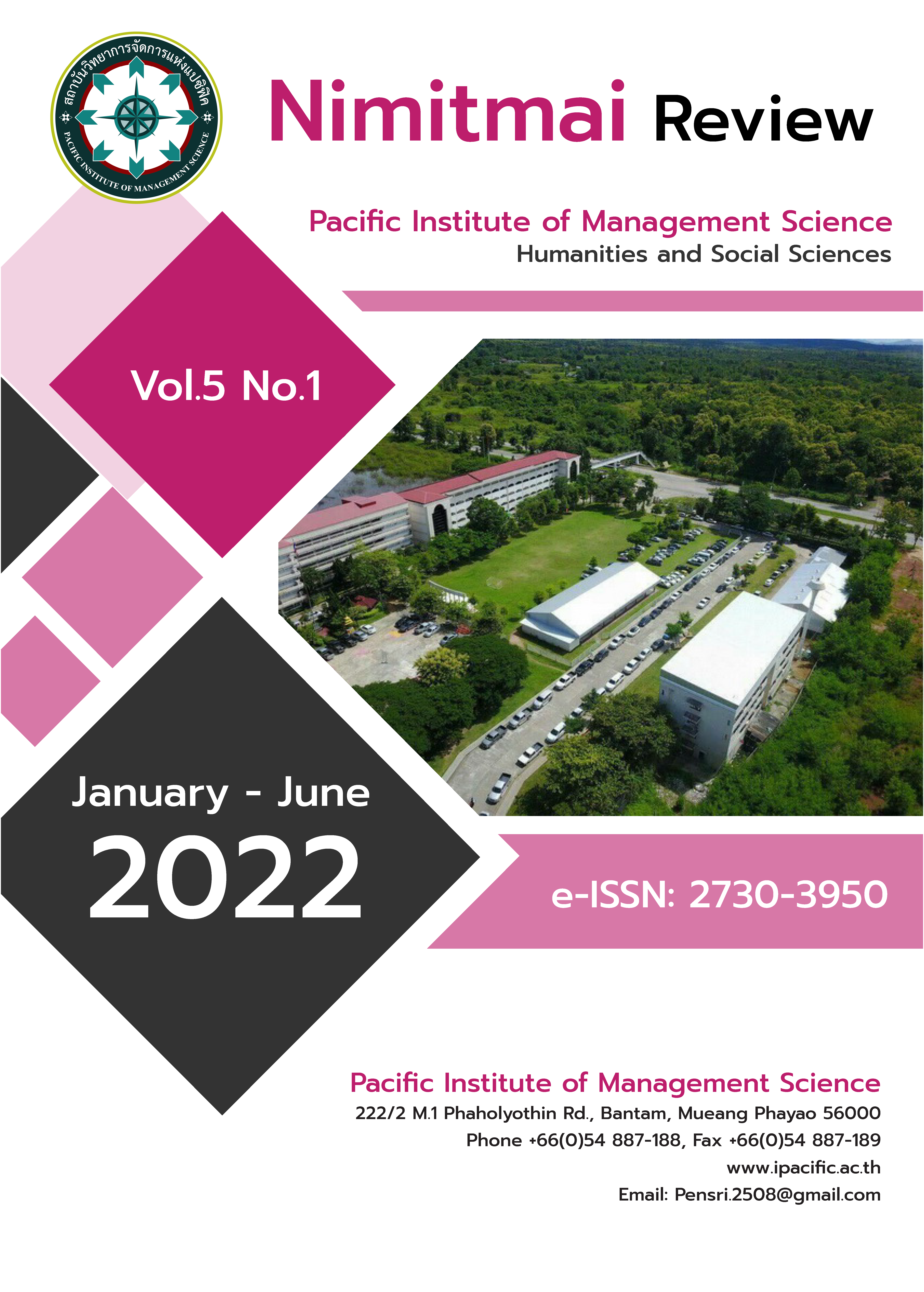TRANSFORMATION OF INDIA TOWARDS NET ZERO TARGETS: CHALLENGES AND OPPORTUNITIES
Transformation of India Towards Net Zero
คำสำคัญ:
COP26, Energy politics, India, Issues and opportunitiesบทคัดย่อ
According to the International Energy Agency (IEA) existing energy production is responsible for about 80% of the world’s carbon emissions which cause global warming. Net zero is a part of Paris Agreement in which several nations agreed to renovate their energy policies to solve the purpose. To combat this, the Indian Prime minister Modi unpredictably and boldly pledged at the COP26 Summit (Glasgow), to cut India’s carbon emissions to net zero by 2070. Prime minister also promised for India to get 50% of its energy from renewable resources by 2030, reduce its total estimated carbon emissions by 1 billion tons from 2021 to 2030, construct 500 GW of renewable electricity capacity by 2030, and lessen emissions of GDP by 45% by 2030. Top global leaders and organizations have welcomed India’s move to achieve the targets of net zero by the year 2070. Although the declared goal for carbon neutrality by 2070 is far away the mid-century goal, but experts believe that it is essential and excellent beginning by India to avert the consequences of global warming. The net zero pathway will identify major multi-sectoral efforts and investment for India which still has massive reliance on coal for power and industrial manufacturing. Nevertheless, achieving net zero goals for India is challenging job. Experts believe that with a growing populace and socio-economic development, the probable increase in energy demand coupled with the massive hole in climate finance will undoubtedly be two key challenges in achieving India’s climate goals. Yet, this can be tackled with tactical planning, technically designed guidelines, strict execution of sectoral policies, and better investments in green technologies. Experts also believe that the private sector will also require taking a proactive role in adjusting its business strategies and policies with the country’s climate objectives. Lastly, climate actions will also require being fast-tracked and supported at the state and district level. Finally, we advocate to create our own and flexible energy path for the future to keep the interests of our poorest and vulnerable populations at the center of any pledges we make.
เอกสารอ้างอิง
Capurso, T., Stefanizzi, M., Torresi, M. and Camporeale, S.M. (2022). Perspective of the role of hydrogen in the 21st century energy transition. Energy Conversion and Management, 251, p.114898.
Chaturvedi, V. and Malyan, A. (2021). Implications of a net-zero targets for India’s sectoral energy transitions and climate policy. COP 26, ceen.in
DeAngelo, J., Azevedo, I., Bistline, J., Clarke, L., Luderer, G., Byers, E. and Davis, S.J., 2021. Energy systems in scenarios at net-zero CO2 emissions. Nature communications, 12(1),1-10.
McLaren, D.P., Tyfield, D.P., Willis, R., Szerszynski, B. and Markusson, N.O. (2019). Beyond “net-zero”: a case for separate targets for emissions reduction and negative emissions. Frontiers in Climate, 1, p.4.
Passer, A., Lützkendorf, T., Guillaume, H., Helga, K.K., Monsberger, M., Eder, M. and Truger, B. (2020). Sustainable built environment: transition towards a net zero carbon built environment. The International Journal of Life Cycle Assessment, 25(6), pp.1160-1167.
Patel, S., Dey, A., Singh, S.K., Singh, R. and Singh, H.P., 2021. Socio‐Economic Impacts of Climate Change. Climate Impacts on Sustainable Natural Resource Management, 237-267.
Qayyum, M., Ali, M., Nizamani, M.M., Li, S., Yu, Y. and Jahanger, A. (2021). Nexus between financial development, renewable energy consumption, technological innovations and CO2 emissions: the case of India. Energies, 14(15), 4505.
Ram, M., Osorio-Aravena, J.C., Aghahosseini, A., Bogdanov, D. and Breyer, C. (2022). Job creation during a climate compliant global energy transition across the power, heat, transport, and desalination sectors by 2050. Energy, 238, p.121690.
Reddy, P.B. and Gangle, G.R. (2015). The Post Mortem of IPCC on Climate Change. Life sciences International Research Journal Volume, 2, 1, pp, 187-194.
Reddy, P.B. (2015). Intergovernmental Panel on Climate Change: The Big Global Scam. Proceedings of International conference. Maihar
Srivastava, B. and Reddy, P.B. (2021).The conspiracy of IPCC on climate change. Life Sciences International Research Journal Volume 8 Issue 1, 1-6.
Wang, Q. and Wang, S. (2020). Preventing carbon emission retaliatory rebound post-COVID-19 requires expanding free trade and improving energy efficiency. Science of The Total Environment, 746, p.141158.
Website
https://economictimes.indiatimes.com/topic/Net-zero-goal
https://energy.economictimes.indiatimes.com/news
https://energy.economictimes.indiatimes.com/news.
https://indianexpress.com/article/opinion
https://tickernews.co/is-indias-2070
ดาวน์โหลด
เผยแพร่แล้ว
เวอร์ชัน
- 2022-05-29 (2)
- 2022-05-29 (1)
รูปแบบการอ้างอิง
ฉบับ
ประเภทบทความ
สัญญาอนุญาต
ลิขสิทธิ์ (c) 2022 Nimitmai Review Journal

อนุญาตภายใต้เงื่อนไข Creative Commons Attribution-NonCommercial-NoDerivatives 4.0 International License.



